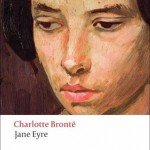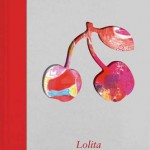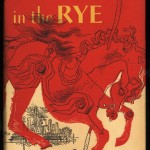 Title: The Secret Garden (Goodreads)
Title: The Secret Garden (Goodreads)
Author: Frances Hodgson Burnett
Published: Oxford World's Classics, 1911
Pages: 210
Genres: Childrens, Classic
My Copy: Paperback
Buy: Amazon, Book Depository, Kindle (or visit your local Indie bookstore)
“Mistress Mary, quite contrary,
How does your garden grow?
With silver bells, and cockle shells,
And marigolds all in a row.”
I admit that when it comes to children’s literature, I’ve been a little slack. So much for the literary explorer, this blog only has two books review that would fit the genre. One being the wonderful Alice’s Adventures in Wonderland which I read a long time ago and absolutely loved, the second was The Pirates! In an Adventure with Scientists by Gideon Defoe. I’ve only read two children’s books for this blog. I was happy to see that the Literary Exploration Book Club on Goodreads (it’s a great group, join it if you want to try different genres) decided that it was about time we did a children’s book. There were some great nominations for this poll, including Charlotte’s Web, Pinocchio, Wonder but it all came down to a battle between The Wind in the Willows and The Secret Garden. I have very vague memories of The Secret Garden; I know it had adventure, a secret garden and it was centred on a young girl.
What I got when I started reading this novel was something truly amazing. It has a nice blend of the Gothic and Romantic ideology and, you know me, that is the type of novel that I crave. The story follows a young girl who is sent to live with her mysterious uncle when her parents died from cholera. It was established from the very first line that “everybody said she was the most disagreeable-looking child ever seen”. We get a sense from that line that no one likes her and add the fact that she grow up in India with servants we know she was an over privileged brat of a child. This is all from the first chapter, so I knew from the start that I was reading a children’s novel that was going to be very different to the ones of its time. The whole idea of the Victorian girl, the girl that is always well behaved and helpful in the kitchen and is spending her time getting educated and prepared for marriage was not going to play any part in The Secret Garden, in fact it was more likely to be similar to Robert Louis Stevenson’s Treasure Island in the sense that we have a child out for adventure.
Now, I’ve stated that there are elements of the Gothic and the Romantic in this novel so let me just expand on that real briefly. Mary was a sickly child when she came to Misselthwaite manor; in fact she was described in the first paragraph to have “a little thin face and a little thin body, thin light hair and a sour expression. Her hair was yellow, and her face was yellow because she had been born in India and had always been ill in one way or another.” Then when you get to chapter 11 you hear her say “’I’m growing fatter,’ said Mary, ‘and I’m growing stronger. I used always to be tired. When I dig I’m not tired at all. I like to smell the earth when it’s turned up.’” All this has been a result of communing with nature, the very essence of the Romantic Movement.
Now when it comes to the Gothic you obviously have the big manor on the moors with all the secrets housed within it. You can see the typical gothic tropes through out The Secret Garden, Mary often hearing mysterious cries in the house and has been told it is just the wind. The whole house and even the garden has secrets and it is this that makes up the architecture for the gothic within this novel. However you can take it one step further, I viewed Misselthwaite manor as a symbol of Mary’s psyche. All those locked rooms hiding the secrets are representative of the psychological damage Mary has been through and slowly has to deal with.
There are so many little elements you can study within this novel. I kept looking at the similarities between characters and tried to understand what would Frances Hodgson Burnett wanted to say. Look at the similarities between Mary and the robin; both orphans, both find refuge in the secret gardens and seeking friendship. Then you can compare the similarities between Mary and Colin; both ten years old, sickly, neglected and over privileged, spoiled little children. I spent a lot of time wondering the importance behind the parallel lives but in the end have just decided that Burnett did this to emphasise the themes throughout this classic children’s novel.
The major theme that I believe comes through The Secret Garden is the importance between friendship and companionship (with Mary and Colin or even the robin). The Christian Scientist idea of disease not being a product of the body but of negative thinking seems to come to mind when I think about this theme. Frances Hodgson Burnett had a keen interest in the Christian Science movement (as well as Spiritualism and Theosophy in general) which developed before she began writing The Secret Garden.
You also have the theme that suggests an importance of being outdoors; the notion of getting out of the house and exercising being healthy for young children runs throughout the novel. This could also been accredited to a Christian Scientist ideology or more a product from the changing times where fresh air and exercise for children have been promoted. There is the Romantic Movement that suggests the importance of communing with nature, which was a backlash against an emphasis on the enlightenment and scientific. The movement wanted to highlight the glory, beauty and power of the natural world. Both Christian Scientists and The Romantics believe the natural world to be a source of healthy thinking, emotions and ideas.
In the end, this book is great and a joy to read, I was wondering how so many people enjoyed the book when I feel like too many people get put off by unlikeable characters. Both Mary and Colin where the most disagreeable children (not entirely true but close) and I’m perplexed, I feel like people only hate a book with unlikeable characters when it suits them and looking for an excuse. Anyway I’m not going to go into that. Analysing The Secret Garden closely, I did wonder if this novel came off too preachy but I enjoyed it none the less. It has inspired me to read some more children’s classics but I’m not sure which one I’ll read next.











I’ve never read The Secret Garden. Actually, I’ve not read much children’s literature at all. I think you’re right in your analysis, especially the Christian Science metanarrative. Also, I wonder if the child was deemed thin and sickly because she was born in India, but when she was exposed to good old ‘Mother England’, she grew fatter and strong. I’m sure there is material for postcolonial analysis in the text.
That is a far assumption to make but I didn’t since Colin was sickly and living in England, he only started getting better when he went outside. I would be curious to see what you thing, if you ever read this book
I recently re-read this with my 7 year old, but I must admit that I enjoyed it far more than she did. If I recall, i think i read it when i was about 12 and loved it then. I was heavily into gothic novels at the time. But it’s a great book, one i thoroughly enjoyed.
Did you review the book? or was that too far ago?
Hi! I must admit I’ve only seen the film but I look forward to reading the book after reading your review!
Hope you get a chance to read it
I haven’t read this book yet, even though it’s a classic and all. I may take it up some day but I don’t feel too inclined yet.
You are missing out on a good book 😛
I wasn’t expecting to like this book as much as I did when I finally read it. It was nothing like I thought it would be.
It was a nice surprise